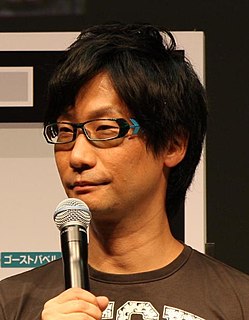Top 94 Quotes & Sayings by Hideo Kojima
Explore popular quotes and sayings by a Japanese designer Hideo Kojima.
Last updated on December 21, 2024.
Every time I make a new game, I put all of my effort completely into that game. It's like putting all your effort into a new child that's being born. Once the project is done, I can step back and look at it objectively, which is when I can see a lot of flaws. That's when I start to make a new game that tries to fix some of those flaws.
























